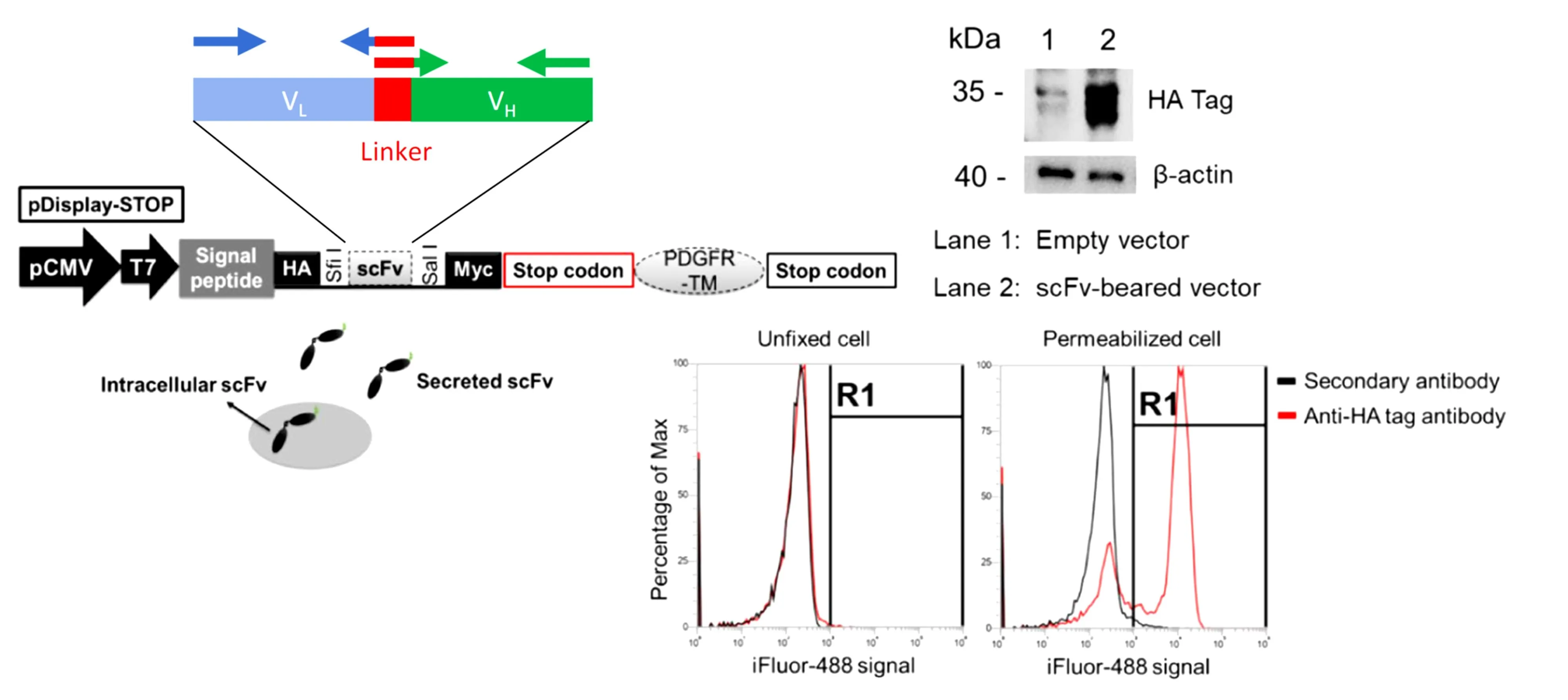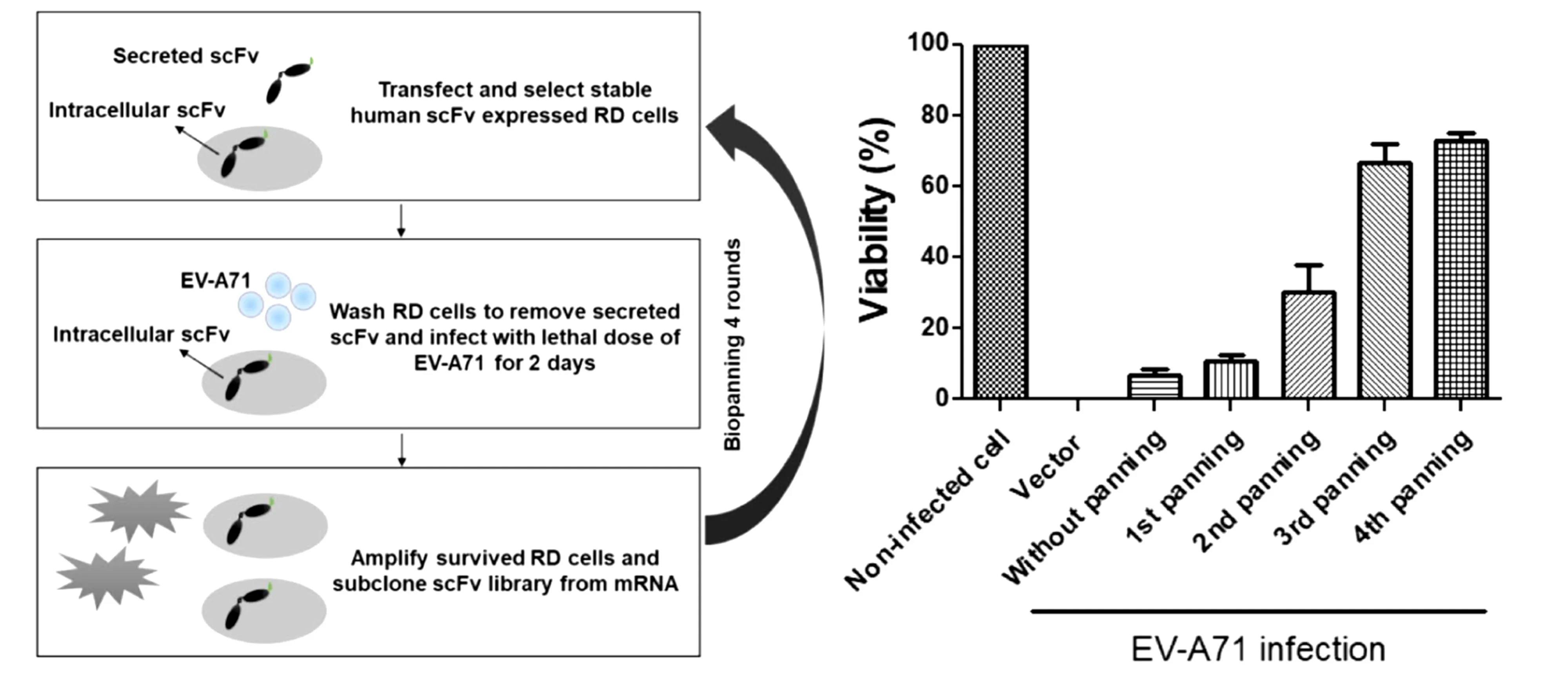
The term scFv stands for single-chain variable fragment, which is a constituent of antibodies that can bind to specific antigens and comprises only the variable regions. scFv has been increasingly utilized in research to detect fragments against infectious agents and cancer cells.
Cheng et al. used a phenotypic directed screening platform to identify an auto-antibody from a scFv cDNA library generated from peripheral blood mononuclear cells (PBMCs) of a human donor.
They discovered that a constructed scFv antibody substantially reduced EV71 replication and increased the cell survival rate. This effect persisted even when using an intact scFv-IgG antibody in vivo. The mechanism was further demonstrated through ENO1 protein. This finding not only revealed a new mechanism of ENO1 connected with EV-A71 virus replication but also proposed a novel anti-EV71 scFv antibody as a potential drug against EV-A71.

Fig.1. Construction of human scFv library into pDisplay-STOP vector, expression of scFv in RD cells, and panning for candidates against EV-A71 infection.

Fig. 2. Total RNA was extracted and reverse transcribed from surviving cells of different panning rounds, and amplified scFv genes were cloned into pDisplay-STOP vector. RD cells were transfected with the libraries from different rounds and challenged with EV-A71 (M.O.I. = 0.01).
After 48 h of infection, WST-8 reduction assay was performed to measure the cell viability.
Leadgene supported this research by providing essential reagents, including cytokines and lactoferin cocktail for PBMCs culture, and HyFect® DNA Transfection reagent to introduce scFv genes into cells for screening.
Reference:
